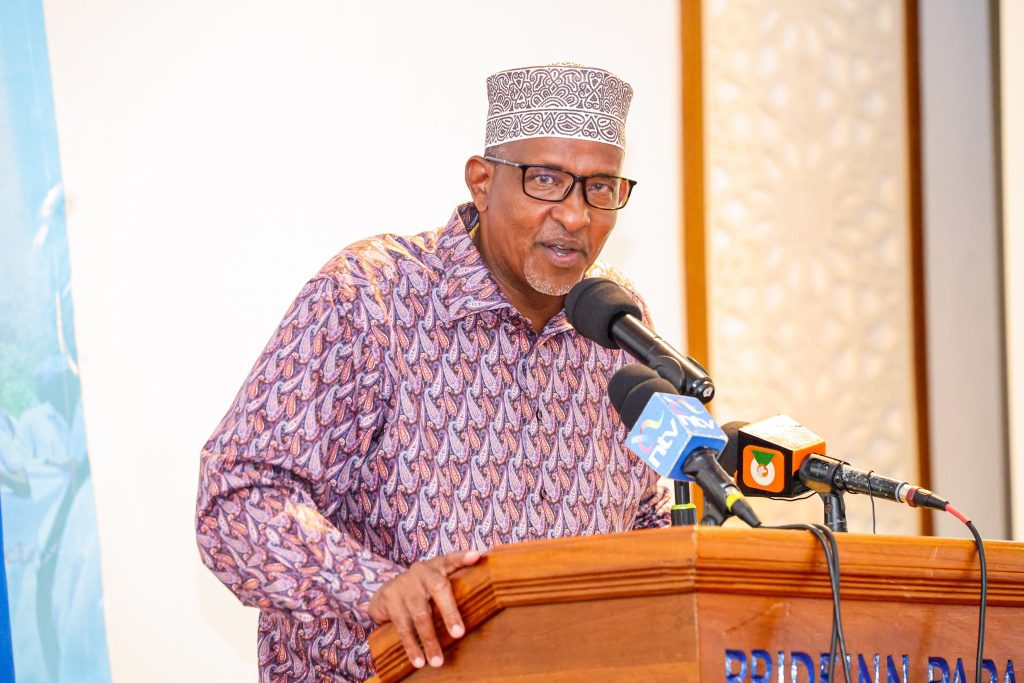Kenya’s health landscape is buzzing with debate: is Aden Duale advocating for teenage pregnancies through promises of free deliveries under SHA? On September 30, 2025, Cabinet Secretary for Health Aden Duale announced at UMMA University in Kajiado that all teenage mothers across the country will receive fully covered maternity services via the Social Health Authority (SHA), sparking mixed reactions from parents, activists, and youth groups.
With over 41,000 young mothers already benefiting from 627,155 total deliveries under the program since its rollout, Duale has emphasised comprehensive coverage, from antenatal check-ups to postnatal care and C-sections, aiming to slash maternal mortality rates that claim 355 lives per 100,000 births annually.
Yet, critics question if this safety net inadvertently normalises early pregnancies in a nation where 15% of girls aged 15-19 face this reality. Duale’s bold declaration comes amid SHA’s aggressive push for Universal Health Coverage (UHC), transforming the defunct NHIF’s Linda Mama into a robust Linda Jamii package.
No longer reliant on parental insurance, teenage mothers aged 13-19 now get independent health cards, ensuring stigma-free access to Level 2-6 facilities. “Nobody has scrapped Linda Mama; we’ve enhanced it,” Duale clarified, countering claims made by former President Uhuru Kenyatta of eroded gains.
In just nine months, SHA has enrolled 26.5 million Kenyans, disbursing billions for free outpatient services, vaccinations, and maternal interventions. Low-income families in rural hotspots like Kisii or Turkana, where adolescent fertility rates reach 120 per 1,000, will no longer have to bear the financial burden of emergency deliveries or newborn care, including anti-D serum for Rh-negative moms.
But is Aden Duale advocating for teenage pregnancies by highlighting these perks? Social media erupts with concerns that freebies might downplay prevention, especially as Kenya grapples with root causes: poverty, school dropouts, and cultural norms pressuring girls into unions.
Activists from FEMNET argue the announcement glosses over mental health tolls, with studies showing 30% of teenage mums battle postpartum depression without tailored counselling.
The government’s multi-pronged approach shines in numbers: SHA’s Lipa Pole Pole payment plan eases contributions for families, while KSh 13 billion safeguards access at public facilities.
Duale, a vocal Kenya Kwanza ally, ties this to President Ruto’s bottom-up vision, vowing crackdowns on fraudulent billing, with over 1,400 private hospitals shuttered for malpractice.
For teenage mothers navigating isolation, these reforms offer dignity: mobile clinics in slums, peer support via apps linked to TaifaCare, and vocational training hubs.
Community stakeholders in LMICs like Kenya highlight service gaps; derisive attitudes at MCH clinics deter visits, per phenomenological studies on adolescent experiences, as integrating empathy training for providers could amplify impact, turning free deliveries into gateways for empowerment.
As October unfolds, Duale’s office plans nationwide sensibilisation, including workshops on contraception access and life skills in high-risk schools. Partners like UNICEF praise the equity focus but urge metrics tracking. Will free SHA deliveries reduce complications by 20%, as targeted?
For families now looking at ‘Is Aden Duale advocating for teenage pregnancies?’, the answer lies in balance: celebration of life-saving nets without excusing systemic failures like child marriages.














